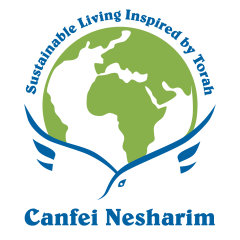By Avi Neuman
The Parsha of Vayeitzei is dedicated by Menachem Ely, in honor of his family.
The Sefer of Bereishit is dedicated in memory of Jacob Cohen by Marilyn and Herbert Smilowitz and family.
View a Printable Version | View a Source Sheet
As Rebbe Nachman reminds us: “The world and all that fills it is potential…only G-d alone is necessity.”[11] Bringing that understanding into day to day living is a spiritual labor of situating the spectrum of material possibility within the reality of a wholeness that precedes and contains it. It requires living every moment in intimate relationship with G-d.
Ya’akov fully encounters Makom in its aspect of “place,” at exactly this moment, as he stands on the edge of radical transformation. That is where we engage G-d in the deepest sense of growing and knowing. The Beit Ya’akov likens this to morning light. Until it comes in, the world is a liminal mix of light, dark and shadow; a place in which meaning is difficult to ascertain.
Then comes that moment when light begins to illuminate the day. Within that transition we experience a powerful sense, an echo of the creative will that underlies it all. We understand that the vessel contains infinitely more than its simple structure suggests. It is this appreciation that dawned on Ya’akov at Beit-El. The responsibility inherent in that knowing awed him.
Ya’akov connects to an inner point of G-d awareness through which he must face the world to bring the material issues he encounters to a conscious place. His vow is now not so strange. He asks for the strength, protection and sustenance to bring this labor of spirit and body to fruition.[12] He realizes that even the simplest things are not really his to acquire.
Such understanding is a crucial foundation for any environmental work striving for real change. It was necessary for Ya’akov to leave the comforts of home and society in order to gestate, transform and become. It is now necessary for him to reenter society and bring that which is holy into all that is profane. That is a labor that can only be accomplished through bringing awareness to action. Ya’akov is perhaps the first spiritual social activist.
Ya’akov teaches us that environmental — or any other social action — is at root the recognition that our lives can manifest the world as it should be, rather than accepting what it is or appears to be. A truly “Jewish” ecology must recognize spiritual orientation, or reorientation, as the starting point for meaningful practical action.
Following his encounter, Ya’akov doesn’t withdraw into meditative prayer and ecstatic communion with the Divine. Alive with new purpose he “lifted his feet,”[13] and stepped forward to struggle with the realities of sustenance, family, social living and justice. Sforno[14] tells us that when a person travels to a place with purpose, that drives him to lift his feet.
Ya’akov arrives on the outskirts of Haran, engages the shepherds, lifts the stone from the well, recognizes and embraces Rachel, bursts into tears. He is a whirlwind of action and interaction; inflamed by the overwhelming passion to forge a life based in wholeness and truth. He is on fire with the beauty of potential, even as he understands all too well, that the world is only potential. With that realization, the work of integrating what is necessary begins.
Suggested Action Items:
Reorienting ourselves towards meaningful action in the world is hard, and removing ourselves from the patterns and habits of daily living to redefine relationships to material things is a struggle. Leaving it all behind for a while as Ya’akov did may not always feel like a practical reality, but fresh perspective is a necessary piece of the process.
Here are some simple ways I try to create that space in my life:
- Take up to one hour every day away from all the things competing for your time and energy. Reflect inwards and make decisions concerning who you are, how you want to grow, and the impact you have on the social, spiritual, and physical environments you inhabit. Ask G-d to open you to the possibilities.
- Make conscious decisions about your patterns of consumption and begin taking specific actions to shift the balance. For example, every time you buy something actually stop for a second and ask yourself: “Is this something I want, or something that I need?” Try to get to the root of what the difference between those two impulses is for you. For one week buy only those things that you “need.” See what that feels like.
- Teach your children healthy patterns of giving and try to infuse them with a relationship to material things based in sharing. For example, every morning give your child the “honor” of distributing coins to their siblings and other members of the household to give as tzedakah (charity). At birthday parties, have your child serve his or her guests their cake before being served a piece her or himself — not as a chore, but as an honor.
View source sheet
View printable version
Avi Neuman lives and learns at the Bat Ayin Yeshiva Kollel with his wife Debby and daughters Kirvayah Maayan and Anayah Ohr. Summers the family teaches in the U.S.Avi holds M.A.s in Anthropology and Folklore, is an avid gardener, writer and hand-drummer.
Notes:
[1] Bereishit 28:10-15
[2] Bereishit 28:11
[3] Rashi, Bereishit 28:11, s.v. “vayifga bamakom.”
[4] Rashi, Bereishit 28:11, s.v. “ki va hashemesh.”
[5] Bereishit 28:20-21
[6] Ramban, Bereishit 28:12, s.v. “vihinei sulam.”
[7] Bereishit 28:15
[8] Devarim 32:9
[9] Midrash Tanchumah,Vayeitze 2, s.v. vayachalom vihinei sulam
[10] Sefer Beit Ya’akov on the Torah Bereishit, Vayeitzei, 15
[11] Likutey Moharan, Part I:52a
[12] See Nechama Liebowitz, Studies in Bereishit, pp. 306-307
[13] Bereishit 29:1
[14] Sforno, Bereishit 29:1
